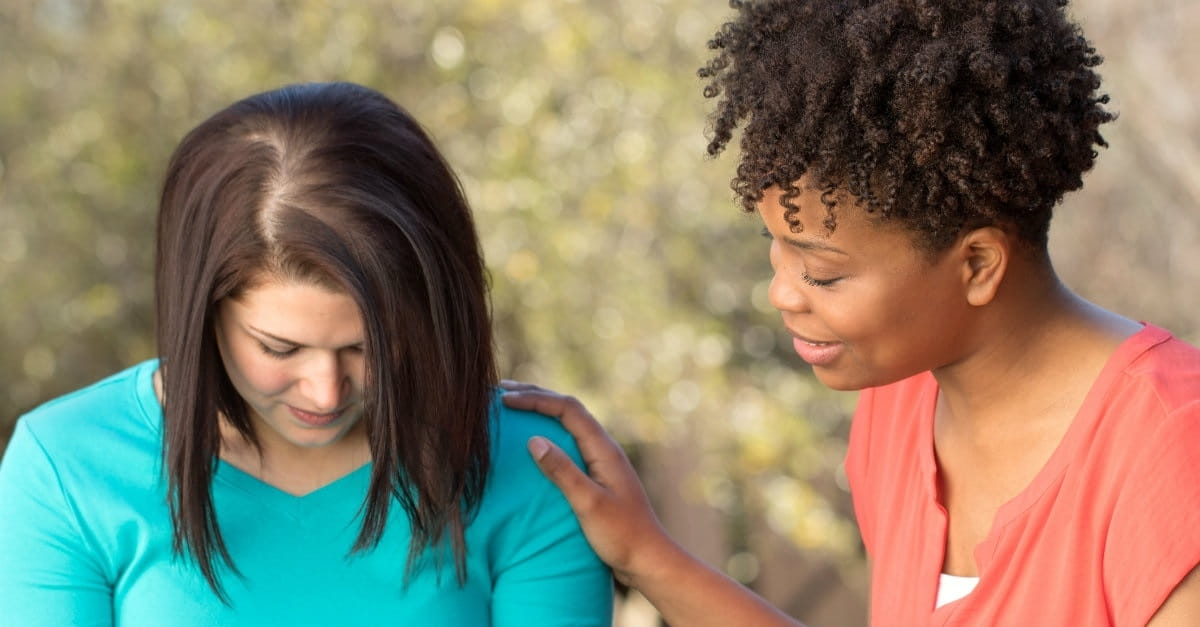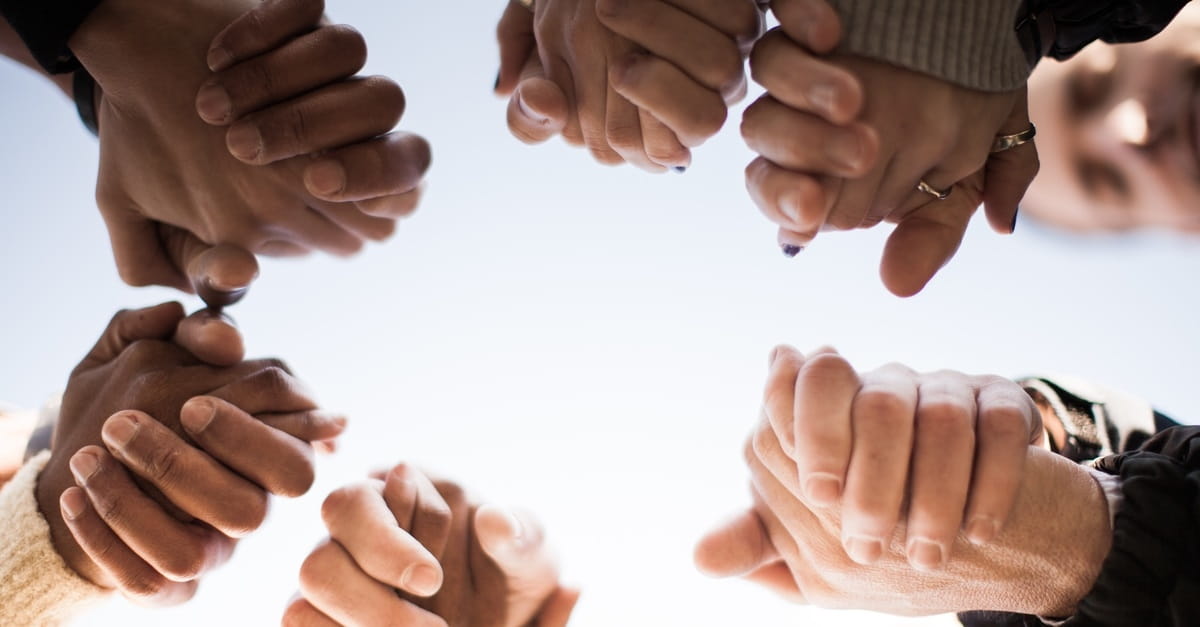
[Editor’s note: The following is adapted from two articles by Sarah Garrett, first published on Lies Young Women Believe. Used with permission.]
Have you ever had a person notice that you were sinning and then call you out on it? How did you feel? Embarrassed? Angry? Grateful?
I became a Christian at a young age and have lived a faithful Christian life. Somewhere along the way, I began to think that I was better than other Christians because “my sin wasn’t as bad as their sin.” That’s a prideful and self-deceiving attitude, but I acquired it nonetheless.
Then in my senior year of college, I had an experience that forever changed me. I was in the car with a guy friend and saw a girl who I absolutely could not stand. I looked at my friend and said, “Do you see that girl right there? She is terrible . . . ” and I went on to list every negative thing I knew about her.
While I sat there feeling good about my superiority, he looked at me and said, “Sarah, why do you think you’re better than her? You don’t know what she’s been through in her life that makes her the way she is. We are all sinners, and Jesus died for her. You sin, too, and Jesus loves that girl just as much as He loves you.”
I wanted to fire back with some witty retort, but I couldn’t. He was right.
I was just as guilty.
Just as sinful.
Just as in need of a Savior.
My stomach still churns when I think about that moment.
Photo Courtesy:Unsplash
Rethinking the Speck
.1200w.tn.jpg)
I’ve noticed that even in our Christian culture, it often seems taboo to keep each other accountable for our sin. When I talk about this topic, I am usually met with the following verses from Matthew 7:3–5:
“Judge not, that you be not judged. For with the judgment you pronounce you will be judged, and with the measure you use it will be measured to you. Why do you see the speck that is in your brother’s eye, but do not notice the log that is in your own eye? Or how can you say to your brother, ‘Let me take the speck out of your eye,’ when there is the log in your own eye? You hypocrite, first take the log out of your own eye, and then you will see clearly to take the speck out of your brother’s eye.”
Photo Courtesy: © Thinkstock
After we have our plank removed, we can remove the speck from another's eye.

I’ve noticed that people usually stop at the phrase “do not judge” and don’t even consider all the truth that follows afterward. If they do make it past this part, I often hear the “plank” defense. If we are walking around with proverbial planks in our eyes we will never be able to help one another.
This just isn’t true. If you read the last verse, it clearly indicates that after we have our plank removed, just like I did in college, that then we can effectively remove the speck from the eye of our brother or sister. My friend was able to successfully remove the plank from my eye that I didn’t even know was there. I am eternally grateful he took biblical accountability seriously.
Photo Courtesy: Unsplash
Two Reasons for Accountability

Here are two reasons we need to keep each other accountable.
1. Avoiding sin.
Sin is serious! It separates us from God and wreaks havoc on our human relationships.
In Matthew 5:29–30, Jesus says, “If your right eye causes you to sin, tear it out and throw it away. For it is better that you lose one of your members than that your whole body be thrown into hell. And if your right hand causes you to sin, cut it off and throw it away. For it is better that you lose one of your members than that your whole body go into hell.”
There is no room for misinterpretation here: All sin is serious.
If we see a Christian who has sin in her life and seems unaware, as a fellow Christian we need to say something. (I’ll break down how to do this in Friday’s post.)
Photo Courtesy: ©Thinkstock
2. Growing in godliness
.1200w.tn.jpg)
God gave Christians each other to help us in our walk, just as my guy friend helped me. A second reason to hold each other accountable is so we can grow in knowledge and strengthen each other’s walk with the Lord.
Ephesians 4:14–16 sums this up when it states:
So that we may no longer be children, tossed to and fro by the waves and carried about by every wind of doctrine, by human cunning, by craftiness in deceitful schemes. Rather, speaking the truth in love, we are to grow up in every way into him who is the head, into Christ, from whom the whole body, joined and held together by every joint with which it is equipped, when each part is working properly, makes the body grow so that it builds itself up in love.
Photo Courtesy: ©Thinkstock
Keeping each other accountable is loving each other well.
.1200w.tn.jpg)
When we call each other out in love and accept it willingly, it helps us grow or “mature” in our walk with Christ. We get to become more like Jesus.
Keeping one another accountable is healthy and not a battle for spiritual superiority; it’s a way to love each other well by helping each other live like God asks us to. There is a correct and biblical way to do this.
Photo Courtesy: ©Thinkstock
Part Two: How to Speak Up About Someone Else's Sin

The following verses explain how to effectively hold someone accountable.
Speak the Truth in Love
Rather, speaking the truth in love, we are to grow up in every way into him who is the head, into Christ, from whom the whole body, joined and held together by every joint with which it is equipped, when each part is working properly, makes the body grow so that it builds itself up in love (Eph. 4:15–16).
Before I experienced someone lovingly calling out my own sin (read more about that here), my approach to accountability would not have been loving. Instead, it would have been rooted in superiority.
Photo Courtesy:©Thinkstock
Why do you want to point out the sin?

If you are close with someone who claims to be a Christian and you see them in open sin, ask yourself why you want to point it out to them. Is it to help them grow in their walk and keep them out of sin, or is it to make you feel superior because you think you’re better?
If love is not your motivator, you will fail and the Body of Christ will suffer.
Photo Courtesy: Unsplash
Follow the Steps

Matthew 18:15–17 provides clear steps for accountability.
“If your brother sins against you, go and tell him his fault, between you and him alone. If he listens to you, you have gained your brother. But if he does not listen, take one or two others along with you, that every charge may be established by the evidence of two or three witnesses. If he refuses to listen to them, tell it to the church. And if he refuses to listen even to the church, let him be to you as a Gentile and a tax collector.”
Photo Courtesy:©Thinkstock
Here's the breakdown:
.1200w.tn.jpg)
Step 1: Start by telling the person with just the two of you there. In an attitude of love, explain what you see happening and ask if they see it, too.
Step 2: If they refuse to see, then ask a few people to join you who care for the person and have also seen the behavior. This way the person will know you’re not just making it up.
Step 3: Many times it will not get to the third step, which is to tell the church. If the person doesn’t listen after the first two steps, enlist the help of a pastor or youth pastor.
Step 4: If all of these measures fail, God allows us to no longer carry the burden of making the person see the truth. He can find another way to reach the person even if it isn’t through you.
As a final step, never stop praying that the person’s eyes will be opened even if they don’t listen to you. (For more on how to pray, check out this post from our archives, “How to Pray When Someone You Love is Stuck in Sin.”)
Photo Courtesy: ©Thinkstock
It's important to keep each other accountable.

I am passionate about Christians keeping each other accountable, because it truly changed my life and I am forever grateful. Because someone else was brave enough to call out sin in my life, it has helped me to grow in my faith and approach people in a more loving way. I am more effective in ministry because of the gift of accountability, and I think we could be more effective as the Body of Christ if we were not afraid to hold one another accountable.
Adapted from “The Gift of Accountability” and “How to Speak About Someone Else’s Sin” originally published on Lies Young Women Believe.
Sarah Garrett is a passionate educator and founder of the Transformed4More Ministries that she runs with her identical twin sister. It is her desire to reach struggling teenagers and tell them about the transformative power and love of God. Her book, "So, You Think You Are Ready to Date?" released in October 2017.
Photo Courtesy: Lightstock